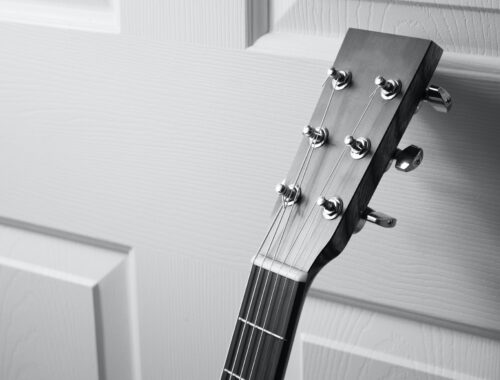
Guitar Practice Strategies for Rapid Improvement
Playing the guitar is an incredibly rewarding and fulfilling pursuit. Whether you’re a beginner just starting your journey or an experienced player looking to refine your skills, effective practice is the key to rapid improvement. In this comprehensive guide, we’ll explore essential guitar practice strategies that will help you advance quickly, build solid foundations, and become the guitarist you aspire to be.
The Importance of Structured Practice
Structured practice is the foundation of guitar mastery. It’s not about how much time you spend practicing but how effectively you use that time. Here are some crucial aspects of structured practice:
1. Set Clear Goals:
Define your goals and objectives. What do you want to achieve in your guitar playing? Whether it’s mastering a particular song, improving your speed and accuracy, or understanding music theory better, having clear goals provides direction for your practice.
2. Establish a Routine:
Create a regular practice routine. Consistency is key to rapid improvement. Dedicate a specific amount of time each day to practice, and stick to your schedule as closely as possible.
3. Warm-Up Exercises:
Begin your practice sessions with warm-up exercises. Simple finger exercises or a few minutes of scale playing can help improve finger dexterity and prevent injury.
4. Break It Down:
Deconstruct complex songs or techniques into smaller, manageable parts. Focus on mastering one element at a time. For example, work on a challenging solo by practicing each lick separately before playing the entire solo.
5. Quality Over Quantity:
Short, focused practice sessions can be more productive than long, aimless ones. Concentrate on quality, not quantity. If you have limited time, aim for a highly focused and effective 20-30 minute practice session.
6. Record Your Practice:
Recording your practice sessions can provide valuable insights into your playing. You can review your performance to identify areas that need improvement and track your progress.
Essential Guitar Practice Techniques
Now, let’s delve into specific practice techniques that will help you achieve rapid improvement:
1. Scales and Finger Exercises:
Scales are the foundation of guitar playing. Practicing scales not only improves your finger dexterity but also enhances your understanding of music theory. Work on major, minor, and pentatonic scales to strengthen your foundational skills.
2. Chord Changes:
Smooth chord changes are essential for rhythm guitar playing. Practice transitioning between chords accurately and quickly. Gradually increase the tempo as your proficiency improves.
3. Metronome Practice:
A metronome is an invaluable tool for developing a sense of timing and rhythm. Start slow and gradually increase the tempo. Use the metronome for both scales and chord progressions.
4. Ear Training:
Train your ear to recognize melodies, chords, and progressions. Play songs by ear, transcribe solos, and challenge yourself to figure out the chords and melodies of your favorite tracks.
5. Song Practice:
Learning songs you love is a great way to stay motivated and apply your skills in a real musical context. Break songs into sections and practice them thoroughly before attempting the entire piece.
6. Technique Building:
Identify specific techniques you want to master, such as bending, vibrato, or legato. Dedicate focused practice sessions to these techniques, and don’t move on until you’ve made significant progress.
7. Theory Study:
Understanding music theory is invaluable for any guitarist. Spend time learning about scales, chord construction, and how different chords and scales work together.
8. Visualizing the Fretboard:
Practice visualizing the fretboard. Close your eyes and mentally navigate the guitar neck. This will help you find notes and chords more easily when playing.
9. Slow Practice:
When learning a new song or technique, practice slowly and with great attention to detail. This ensures that you develop proper muscle memory and accuracy.
10. Record and Reflect:
Record yourself regularly and critically assess your playing. Listen for timing, tone, and accuracy. This will help you identify areas that need improvement and track your progress over time.
Advanced Practice Techniques for Rapid Improvement
For more advanced players, here are some techniques to take your practice to the next level:
1. Transcribing Solos:
Transcribing solos from your favorite songs is an excellent way to improve your ear, technique, and understanding of musical phrasing.
2. Alternate Tunings:
Experiment with alternate guitar tunings to discover new sounds and expand your creative horizons.
3. Experiment with Effects:
Incorporate effects like delay, reverb, and distortion into your practice to explore new tonal possibilities and develop your sound.
4. Collaborate with Others:
Playing with other musicians, whether in a band or through jam sessions, challenges you to adapt and think on your feet. It’s an excellent way to develop your musicality.
5. Compose Your Music:
Creating your music is a rewarding way to apply your skills and express your unique musical voice. Write your songs, riffs, and chord progressions.
6. Seek Feedback:
Share your music and playing with fellow guitarists or a teacher. Constructive feedback can help you identify strengths and areas for improvement.
Common Practice Pitfalls to Avoid
While effective practice can lead to rapid improvement, there are common pitfalls that can hinder your progress. Be mindful of these as you practice:
- Lack of Focus: Practicing while distracted or unfocused can lead to inefficient use of your time.
- Mindless Repetition: Repeating the same exercises without attention to detail or improvement can lead to stagnation.
- Ignoring Weaknesses: Avoiding challenging aspects of your playing only delays improvement. Instead, confront your weaknesses head-on.
- Rushing Progress: Don’t rush through exercises or songs to reach the finish line. Take your time to understand and master each element.
- Neglecting Ear Training: Developing your ear is as crucial as improving your technical skills. Don’t underestimate the value of ear training.
- Inadequate Rest: Playing for extended periods without breaks can lead to fatigue, potentially leading to injuries or poor performance.
- Lack of Patience: Rapid improvement doesn’t happen overnight. Be patient and persistent in your practice.
Effective guitar practice is a journey that combines dedication, discipline, and creativity. Whether you’re a beginner or an advanced player, structured practice is the key to rapid improvement. Set clear goals, establish a routine, and practice with purpose. Use a metronome, record your playing, and don’t shy away from challenging yourself.
Ultimately, the joy of playing the guitar comes from the progress you make. With consistent, focused practice, you’ll experience the satisfaction of rapid improvement and unlock the full potential of your musical journey. So, pick up your guitar, follow these practice strategies, and embark on a path of continuous growth and musical fulfillment.
You May Also Like

Understanding Guitar Scales and Modes: Unlocking the Fretboard’s Musical Potential
July 1, 2023
Practice Regularly
March 29, 2023

